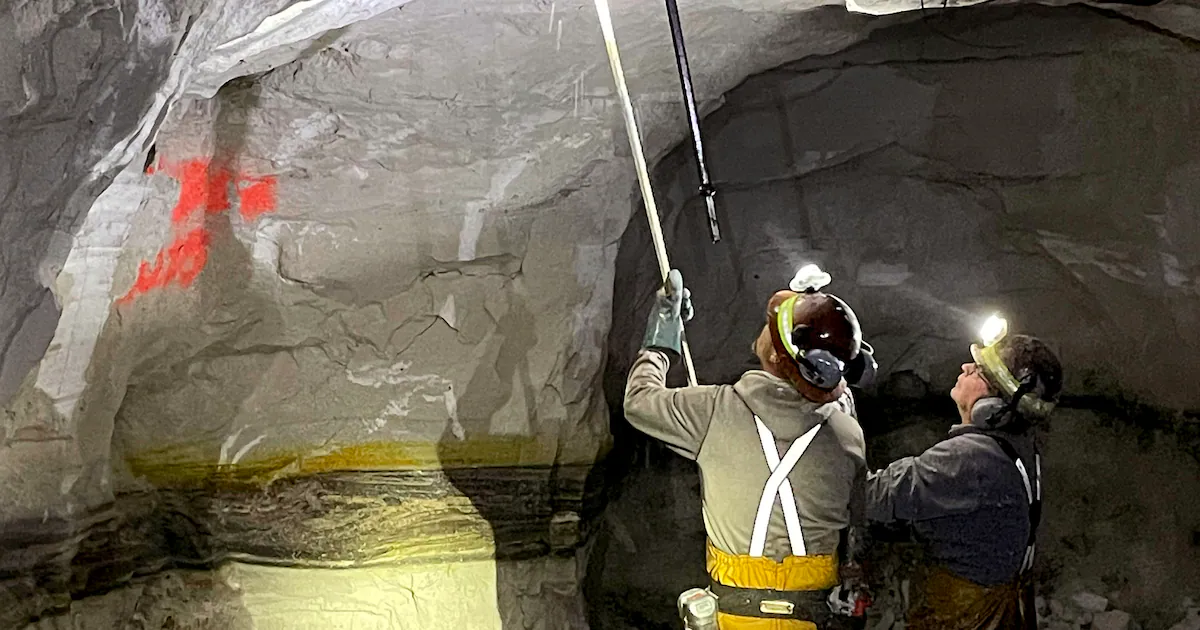Copyright Salt Lake City Deseret News

This week, President Donald Trump and Australian Prime Minister Anthony Albanese signed a historic $8.5 billion critical minerals deal in an attempt to stave off China’s influence in the market. Utah Gov. Spencer Cox went on a trade mission this week to New Zealand and Australia and stressed Utah is open for business. In the global race to secure rare earth minerals and critical minerals, Cox wants to be at the top of the heap when it comes to being a beneficiary of the deal. Western Australia has some of the world’s richest untapped reserves of uranium, but a ban on new licenses has been in place since 2017. Yet the prices of uranium have been skyrocketing, escalating from $20 a pound in 2017 to $80 per pound this year. The race is on to secure that uranium for new technology, particular in the production of what is called HALEU — or High Assay Enriched Uranium. As the nuclear reactor market for microreactors and small modular reactors takes hold across multiple countries, the demand for uranium has never been this high in recent history as the scramble goes on for technology able to keep pace with demands posed by artificial intelligence centers and other applications. According to the U.S. Nuclear Regulatory Commission, HALEU has several uses in fuel for different nuclear reactors and in producing isotopes for medical use. For example, some operating research and test reactors use HALEU-containing fuel. Several commercial developers have designs for advanced reactors that would use HALEU-containing fuel. Developers have proposed using HALEU in fuel for molten salt reactors or in TRISO fuel. TerraPower’s Natrium demonstration project in Wyoming, as an example, will be a 345-megawatt sodium fast reactor. Utah recently signed a memorandum of understanding with TerraPower — the company behind Natrium — to assess potential sites in Utah for similar projects. HALEU is important because the use of such fuel may allow for smaller designs that produce more power per unit of volume. Developers also expect that HALEU will allow their systems to be optimized for smaller reactor cores, longer core lives, increased efficiencies and better fuel utilization. However, HALEU is not yet widely available commercially. At present, only Russia and China have the infrastructure to produce HALEU at scale. Centrus Energy, in the United States, began producing HALEU from a demonstration-scale cascade in October 2023. The race is on Utah does not want to be left behind in the effort to secure high grade uranium from Australia for use in advanced nuclear technology and its vital and necessary role in the production of HALEU. While Utah does have active uranium mines, it lacks the capacity to downblend uranium to a necessary status as fuel for advanced nuclear reactor technology. The United States hopes to get in on that game, but it will take time. Not far from Idaho Falls, the Idaho National Laboratory is trying to correct that. While the existing U.S. nuclear fleet uses uranium oxide fuel enriched up to 5% with uranium-235, HALEU is enriched between 5% and 20%. There are two ways to obtain HALEU: enriching uranium to the desired level or downblending high-enriched uranium from existing stockpiles that may have been recovered from used fuel. “INL is tackling this challenge in part by providing small quantities of HALEU to companies with near-term research needs and by converting used fuel from the Experimental Breeder Reactor-II into larger amounts of usable HALEU for first-of-a-kind advanced reactors," according to Nuclear Newswire. This work is intended to help meet the nation’s near- and mid-term HALEU needs while the long-term commercial HALEU supply chain is being established. “A domestic supply of HALEU is critical to the deployment of advanced reactors,” said Jess Gehin, associate laboratory director for INL’s Nuclear Science and Technology directorate, as quoted in the story. “There is an increased urgency as imports from Russia are no longer viable to support advanced reactors’ initial cores.”



